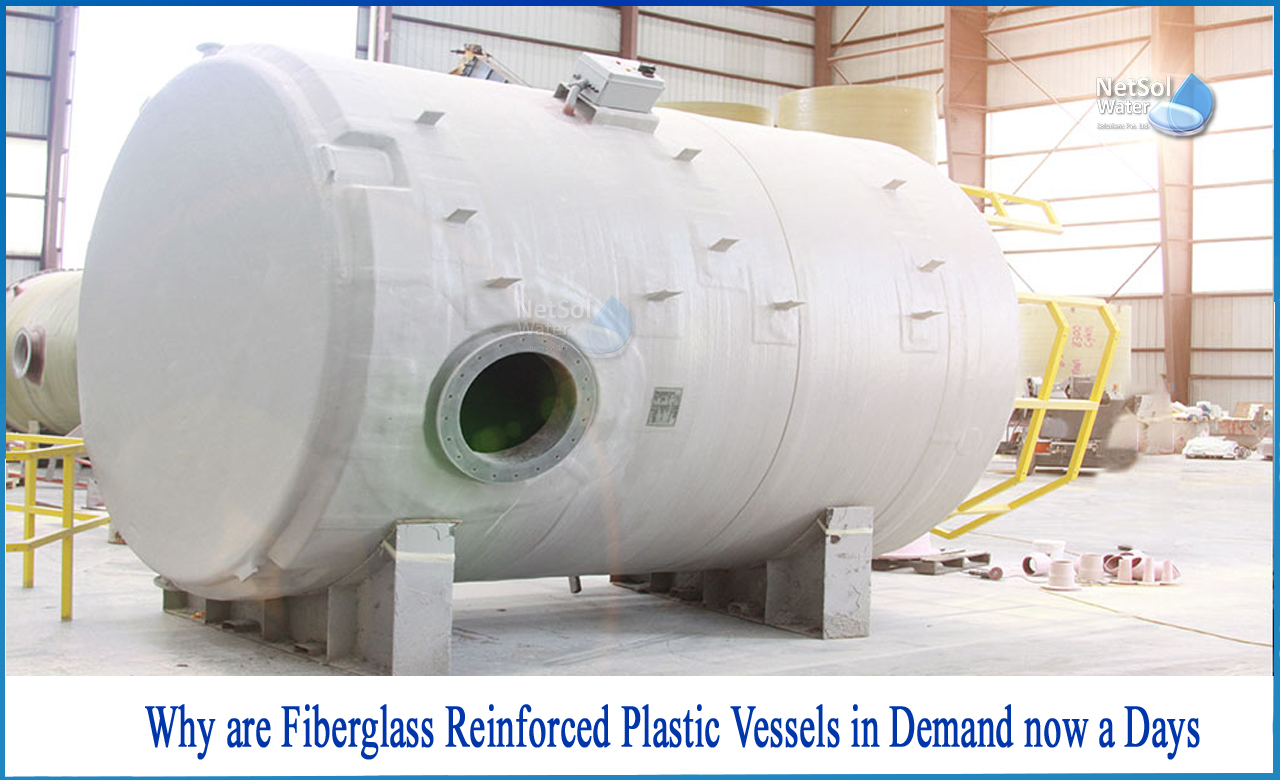What are FRP vessels?
Fiber reinforced plastic (FRP) is a composite material made up of a polymer matrix and fiber reinforcement.
Several design standards, including Bs4994-87, ASME RTP-1, ASTM 3299, and SS245:1995, are used to construct FRP vessels. These design criteria guarantee that the vessel thickness, axial stress, hoop stress, physical characteristics, and Young's modulus are all met.
Any treatment sector relies heavily on high-quality FRP vessels. However, the biggest difficulty with FRP vessels is their endurance. To address these issues, we have developed our most dependable and modern FRP vessel, which can extend the life of any treatment industry.
Why are FRP vessels in demand now a days?
Assume you had a house with no roof, a car with no horn, and a fan with no blades. Any treatment plant without a FRP Vessel is similarly harsh.
One of the most significant components of any treatment plant is the filter reinforced plastic vessel (FRP). They're composed of a high-performance composite material with filament winding to make the filtering procedure as simple as possible.
Advantages of owning a FRP tank
1: UV Light and Corrosion Resistant
2: There are no welds or seams in this one-piece seamless molded tank, which reduces the percentage of leaks (leak-proof)
3: There will be no transparency inside the external water filter, which will minimize the growth of algae and fungus
4: Flexible and long-lasting
5: Cost-effective
FRP Vessels are widely utilized in the industries listed below
1: Fertilizer Manufacturing
2: Plant for Water Treatment or WTPs
3: Industry of food and drinks
4: Industry of Petroleum
5: Pharmaceutical Manufacturing
Chemical plants, oil and gas, wastewater treatment plants, mining, and power plants all employ FRP vessels. It is used to construct vessels ranging in size from 1 to 20 meters. These are also utilized in chlor-alkali production plants, the pulp and paper sector, air pollution control equipment, electroplating applications, and brine making plants, among other uses.
FRP Vessels Market Statistics
From 2020 to 2027, the worldwide FRP vessels market is expected to increase at a CAGR of 6.4 percent, from $1.1 billion in 2019 to $1.6 billion in 2027.
The increased popularity of FRP vessels in chemical plants is attributed to its advantageous qualities such as light weight, ease of handling, ability to be modified readily based on client requirements, and a straightforward installation procedure.
In addition, the worldwide market is seeing an increase in the demand for municipal waste water treatment and the number of portable water treatment plants. In comparison to steel or metallic vessels, FRP composite vessels may be readily moved, handled, and installed at a low cost.
What can Netsol Water offer?
Netsol collaborates with a wide range of international organizations to tackle complicated wastewater problems by strategically integrating modern treatment technology with practical solutions.



